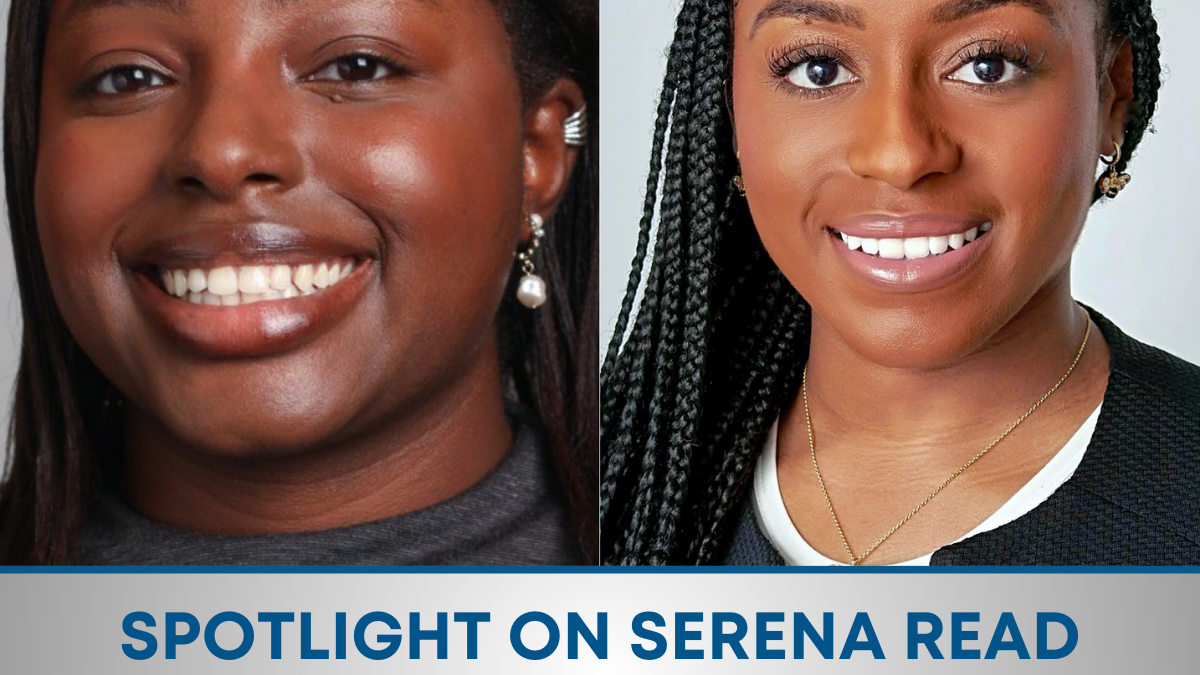
Embracing cultural sensitivity in multinational firms
May 22, 2024
AI in the legal field – An inevitable takeover?
May 24, 2024By Christianah Omobosola Babajide.
Reading time: five minutes
Welcome to the Recruiter Corner! In this segment, we delve into the minds of legal professionals who play a pivotal role in shaping the future of aspiring lawyers.
COB: Today, we have the pleasure of introducing Serena Read, a Graduate Recruitment Adviser at Herbert Smith Freehills (HSF). Serena has been working in graduate recruitment for five and a half years. She is passionate about assisting aspiring lawyers from diverse backgrounds in accessing the legal industry and the opportunities they have at HSF.
COB: Could you begin by explaining the significance of HSF’s vacation scheme in the recruitment process?
SR: As we do not accept direct training contract applications, our vacation schemes play a crucial role in our recruitment process and are the final stage. Whilst the vacation schemes provide candidates with the opportunity to demonstrate to us their skills and suitability for the role, it also gives them first-hand experience of the type of work undertaken by our lawyers and the culture of HSF to help them decide whether we are the firm for them.
COB: What kind of work can candidates expect to experience during the HSF vacation scheme?
SR: On our vacation scheme, candidates have the opportunity tosit in two of our practice areas and can expect to take on real work for real clients. They work directly with expert colleagues (including their own supervisor and trainee buddy) and gain unique experience while being supported every step of the way to develop their skills.
COB: What key skills does HSF look for in candidates when they apply?
SR: We have a strong sense of culture at HSF and have three values which guide the way we all work: Human, Bold and Outstanding. It is therefore important for candidates to demonstrate skills which reflect these values.
We value candidates who can work collaboratively and contribute to the firm therefore embodying our Human value.
In order to be Bold, we need candidates who are innovative, forward thinking and are not afraid to do things differently to fulfil their goals. Candidates can show they have the potential to be Outstanding lawyers by being able to think critically, commercially and analytically, demonstrating they are solutions-focused and client-centred.
COB: How is HSF adopting the SQE?
SR: Herbert Smith Freehills works in a Consortium, together with Freshfields Bruckhaus Deringer, Hogan Lovells, Linklaters, Norton Rose Fulbright and Slaughter and May, which retains BPP Law School to provide the LFC and SQEcourses for our future trainees. As part of this the Consortium have developed a bespoke Consortium Plus Programme which is exclusive to City Consortium trainees.We believe the programme is innovative, exciting and the best in the market to prepare our trainees for practice.
COB: How important is diversity and inclusion to HSF?
SR: Diversity and Inclusion is key to our success at HSF as an international law firm. In graduate recruitment we have several opportunities with a diversity focus.
Many of our open days hosted in our London office are for students from a diverse background, including Black Talent, Social Mobility, MyPlus (Disability) and IRIS (LGBT+). We also host a number of events with diverse partner organisations like Rare Recruitment and Aspiring Solicitors that students interested in HSF can attend. We have two mentoring programmes in partnership with Aspiring Solicitors, one for students who identify as having a disability or long-term health condition and one for black or mixed black heritage students. Additionally, our Roger Leyland Scholarship in partnership with Rare is open to black and ethnic minority students first year students (or second-year students on a four-year course).
Upon starting at the firm as a trainee we have a plethora of diversity networks you can join or even lead that help foster an inclusive culture at HSF, including disability, family, gender equity matters, IRIS (LGBT+), multiculturalism, black employee, social mobility, military & veteran’s and more.
COB: What is the most common way that candidates let themselves down in their applications?
SR: Candidates often let themselves down if they have not properly proofread their applications and their responses lack structure or contain spelling, punctuation and grammatical errors. It is essential for our lawyers to have strong attention to detail and good written communication skills, and so we look for candidates to demonstrate these qualities in our application form. We want answers to be well written, easy to read and succinct, making sure all parts of the question are answered in full.
COB: What important aspects of HSF should a strong candidate be able to discuss?
SR: We expect strong candidates to have researched HSF thoroughly and be able to demonstrate their interest in us as a firm, the work that we do, the clients we have and the sectors in which we operate. We also want candidates to understand what sets us apart from our competitors and why this means they want to build their career with us.
Quick fire questions…
COB: Dream dinner guest?
SR: My late grandmother, she would be making the dinner as well as being the guest as I really miss her cooking!
COB: Best advice you’ve received?
SR: ‘You can only go from where you’re at’ – my mum. Simple but effective when worrying about things outside of your control or that have already happened.
COB: Dream travel destination?
SR: Turks & Caicos/Bora Bora/The Maldives, anywhere that looks too good to be true.
COB: Favourite book?
ST: The Bible, highly underrated.





